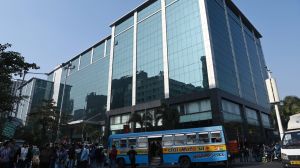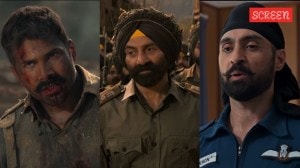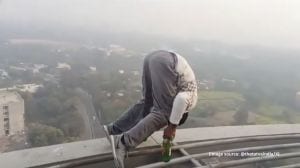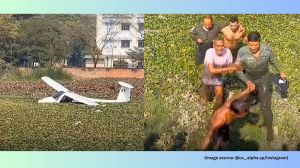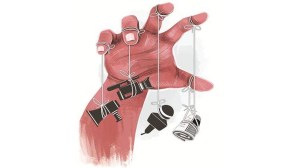What a relief
Remember the Orissa cyclone and the storm that followed?Remember how politicised relief became, with the BJP and Congress tradingangry cha...

Remember the Orissa cyclone and the storm that followed?
Remember how politicised relief became, with the BJP and Congress tradingangry charges over whether the cyclone should be declared a nationalcalamity or not? Remember how the quantum of relief led to angry charges andcounter-charges? One of the reasons for those unedifying scenes was ofcourse the political stakes involved in relief disbursal at that juncture.The state elections was to take place in Orissa a few months later and inthat charged atmosphere, everything but everything became fodder for theimminent electoral campaigns 8212; even something so devastatingly tragic asthat killer cyclone. The people of Orissa are still suffering from theconsequences of political callousness.
Fortunately, there are no state elections looming on the nation8217;s horizonfor the moment, and the nation is free to address the drought tragedy as ithas to be addressed: with one voice, one mind and one machinery. The UnionMinister for Civil Supplies, Shanta Kumar, just back from a tour ofRajasthan, has struck the right note by observing that the Centre wishes totreat all the states equally when it comes to providing drought relief. TheRajasthan Chief Minister, Ashok Gehlot, has responded in the same spirit andhas publicly acknowledged the efforts made by the Centre to this end.
Rajasthan would like the Centre to treat the 1.5 lakh tonnes of foodgrainallocated to it for its Food for Work programme as a grant and Kumarpromised to explore the possibility of doing so. There is provision underexisting famine codes to allow the free distribution of foodgrain to thereally needy in conditions such as those prevailing in many parts ofRajasthan and Gujarat and therefore such a request should be treatedseriously. At the same time, care must be taken to ensure that it does reachthe people it is meant for and not siphoned off by unscrupulous elementssomewhere along the away, making governmental largesse into a charade, inthe process.
There is enough corroborative evidence to suggest that, forget droughtrelief, even a system as well-established as the PDS does not often functionas it is meant to. NCAER data from rural Bihar, for instance, proved thatonly a pathetic 5 per cent of the population have access to rationedfoodgrain. More recent studies have indicated that at least 35 per cent ofthe grain earmarked for such distribution do not reach their destination.One way to ensure that this does happen is to involve the community.
8220;Community participation8221; is more than a pretty sounding phrase in theglobal lexicon. If it can possibly become a part of governmentadministration, it would ensure that a little grain would go a long way. Ifvulnerable groups 8212; including people living below the poverty line,female-headed households, tribal communities and so on 8212; are made aware ofwhat they are entitled too, they will ensure that they get it. Rajasthan hasjust enacted the Freedom of Information Bill. Indeed, the efficacy of thatlaw will be put to the acid test in these difficult times.
- 01
- 02
- 03
- 04
- 05









